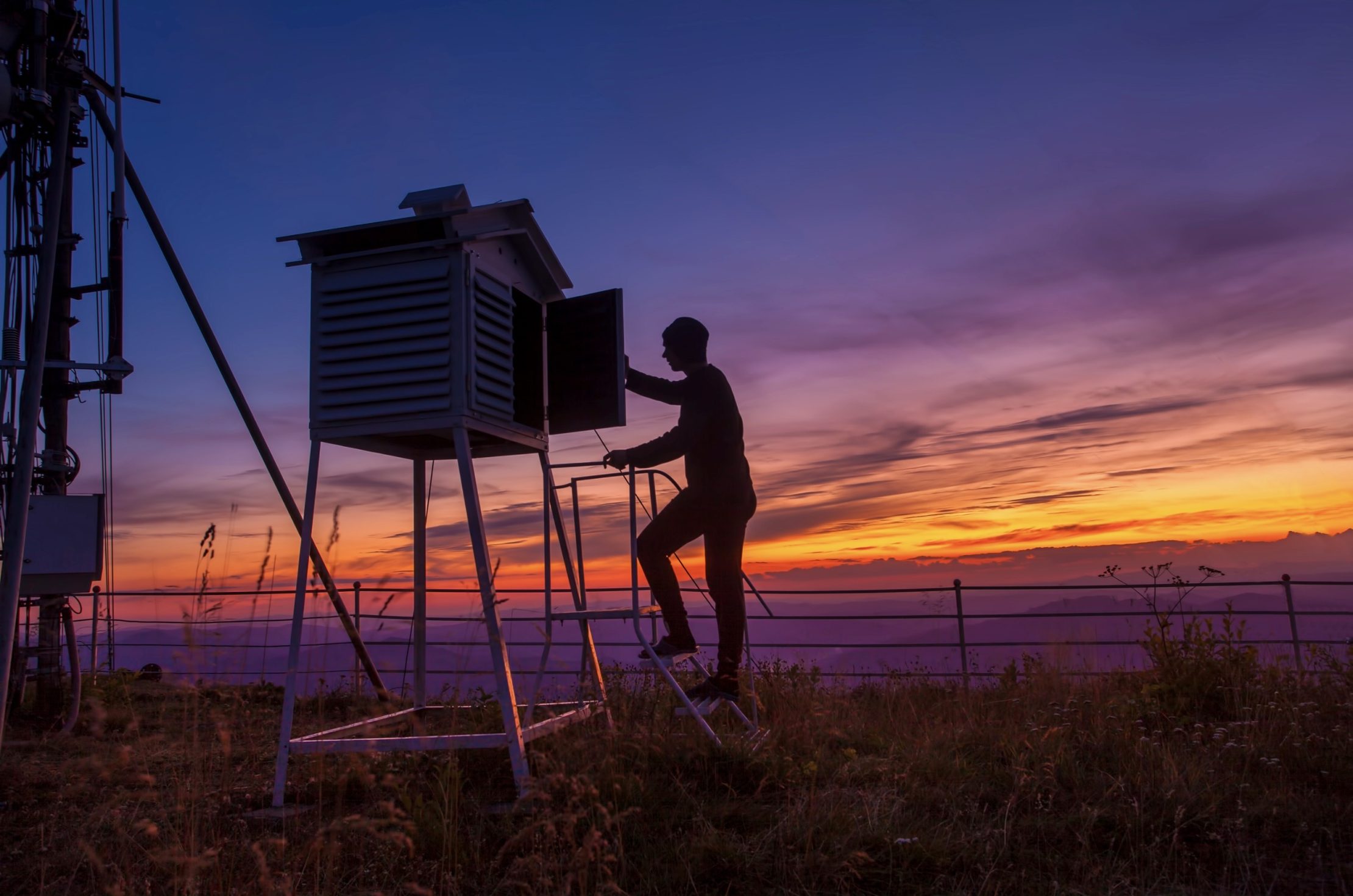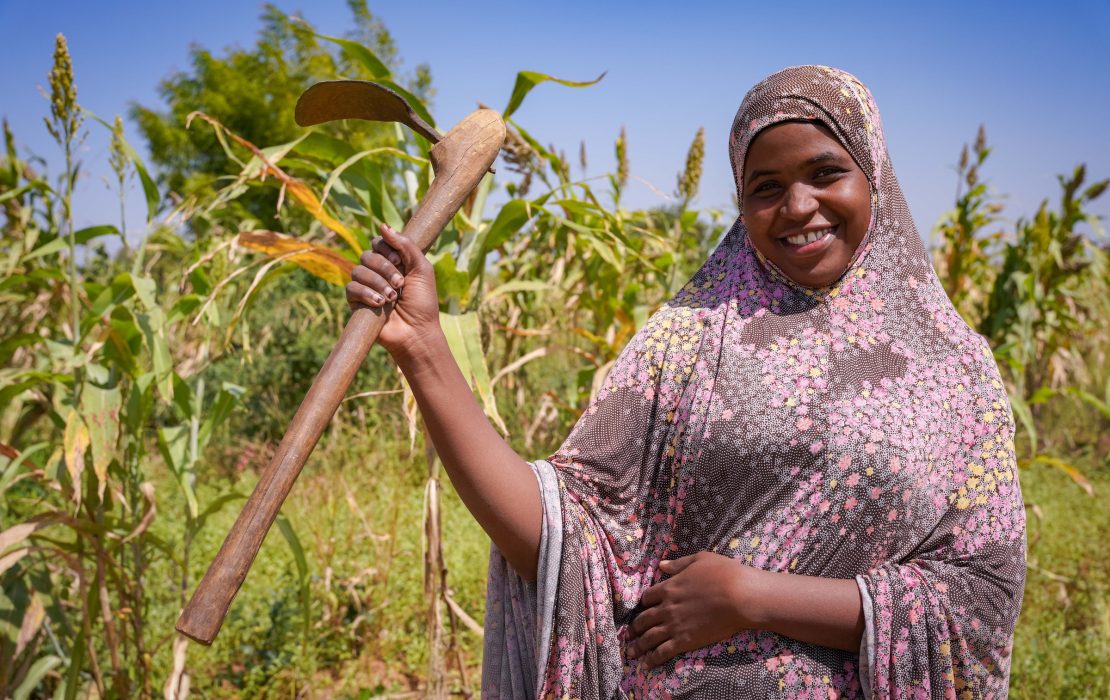
Photo: AdobeStock
- Pioneering finance instrument aimed to strengthen resilience and early warnings worldwide seeks initial capitalization of US$200 million by the end of 2026.
- If backed, the bond will enable five-fold increase in internationally shared weather and climate data.
- Surface weather and climate data are the invisible ingredient of every forecast, early warning and climate action.
Belém, Brazil, 14 November 2025 – The Systematic Observations Financing Facility (SOFF) today opened for contributions to raise US$200 million towards a climate impact bond aimed at strengthening systematic observation of the planet and help close critical weather and climate data gaps.
The Systematic Observation Impact Bond will be announced as part of the COP30 Action Agenda, supported by the Government of Brazil as COP30 Presidency. If backed, the bond would enable 30 Least Developed Countries (LDCs) and Small Island Developing States (SIDS) to meet the requirements of the Global Basic Observing Network (GBON) — the international standard for the weather and climate observations that underpin every forecast, climate action, and early warning system.
Sustainable financing is one of the main barriers to the maintenance of early warning systems and observation, which are essential to prepare for and respond to climate hazards. The innovative tool is pioneered by the Systematic Observations Financing Facility (SOFF), a United Nations fund created by the UN Environment Programme (UNEP), the World Meteorological Organization (WMO) and the United Nations Development Programme (UNDP).
“This Impact Bond will increase internationally shared data five-fold, strengthening the world’s ability to forecast and prepare for extreme weather and climate hazards. Studies show that closing the data gap could generate $5 billion in direct annual benefits and unlock $160 billion in wider economic gains,” said WMO Secretary-General Celeste Saulo.
"If we fail to close the adaptation and data gap now, we are simply locking in far higher costs and risks for the future. This proposed bond shows how public and private finance could unite to support resilience and safeguard lives in a changing climate,” said Inger Andersen, UNEP’s Executive Director.
With the structuring options already designed, ongoing technical preparation is focusing on identifying suitable issuers and partners to enable the bond’s launch and implementation.
Innovating climate finance
The Systematic Observation Impact Bond combines speed, accountability and partnership for the delivery of a global public good. It could catalyze rapid action through capital frontloaded by investors, supported by long-term donor commitments. Contributions will be tied to independently verified results — confirmed by WMO through the increase in internationally shared weather and climate data. The bond will be built on a broad coalition of governments, development agencies, philanthropies, and businesses.
“UNDP’s partnership with SOFF in countries such as Rwanda shows how vital planetary observations are to protecting people and economies,” said Haoliang Xu, UNDP Acting Administrator. “This new Systematic Observation Impact Bond could ease climate financing bottlenecks and help countries access finance faster. It will accelerate installations of weather stations and contribute to the efforts to strengthen resilience where it’s needed most.”
“This bond will change how climate finance is provided for systematic observation, which is a critical element of the Paris Agreement,” said Markus Repnik, SOFF Director. “It will accelerate funding for countries ready to act and guarantees measurable results — more data leading to better forecasts and stronger resilience.”
A showcase of the COP30 Action Agenda
The Systematic Observation Impact Bond embodies the COP30 Presidency’s vision of a Multirão — a collective global effort to deliver tangible progress through solidarity and innovation.
"When a storm hits, or a drought creeps in, the difference between chaos and control often comes down to one thing: whether we saw it coming. Every farmer’s forecast, every early warning system, every national plan depends on that information,” said Dan Ioschpe, COP30 High-Level Champion. “This Impact Bond is a perfect example of a tangible finance solution coming out of the COP30 Action Agenda — a way to help level the playing field.
Delivering global dividends
Closing the essential weather and climate data gap in Least Developed Countries and Small Island States can reduce errors in weather forecasts by 30 per cent in Africa and 20 per cent in the Pacific, according to a study by the European Centre for Medium-Range Weather Forecasts (ECMWF). The impact will be both local and global. Additional internationally shared data improves local forecasts within 12 hours and forecasts across the globe within three to four days. Better data means better preparedness, allowing countries to save lives and safeguard livelihoods.
“All Small Island Developing States need more than promises — we need real financial solutions to strengthen our weather and climate observation systems. - said Michai Roberts, Senior Advisor on Finance at the Alliance of Small Islands States (AOSIS) - This is vital for our resilience but also an extremely valuable global contribution. Observations from island states fill global data blind spots and improve forecasts across the globe.”
According to the World Bank, closing the global basic weather and climate data gap could generate $5 billion in direct annual benefits and unlock $160 billion in wider economic gains across key sectors such as agriculture, energy, water, and transport.
*
About SOFF
Established in 2022, the Systematic Observations Financing Facility (SOFF) is a United Nations fund solely dedicated to closing the basic weather and climate data gaps in the world’s most resource-constrained regions. SOFF provides grants and peer-to-peer technical assistance to help Least Developed Countries and Small Island Developing States generate and sustain surface-based observations that meet Global Basic Observing Network (GBON) standards. By enabling a steady flow of high-quality weather and climate data, SOFF delivers a global public good that strengthens forecasts, improves early warnings, and supports climate-resilient development everywhere.
About WMO
The World Meteorological Organization (WMO) is a specialized agency of the United Nations responsible for promoting international cooperation in atmospheric science and meteorology. WMO monitors weather, climate, and water resources and provides support to its Members in forecasting and disaster mitigation. The organization is committed to advancing scientific knowledge and improving public safety and well-being through its work.
About UNDP
UNDP is the leading United Nations organization fighting to end the injustice of poverty, inequality and climate change. Working with our broad network of experts and partners in 170 countries, we help nations to build integrated, lasting solutions for people and the planet. Learn more at undp.org or follow at @UNDP.
About UNEP
UN Environment (UNEP) is the leading global voice on the environment. It provides leadership and encourages partnership in caring for the environment by inspiring, informing and enabling nations and peoples to improve their quality of life without compromising that of future generations.
More information
Systematic Observation Impact Bond landing page: un-soff.org/impactbond
For media requests please contact:
Clare Nullis, WMO +41 79 709 13 97
Mehmet Erdogan, UNDP +1 917-256-9945
News and Media Unit, UN Environment Programme

